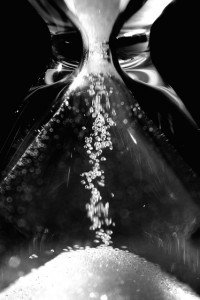
There is more to human ageing than just the passing of time.
A new study, published in PNAS, uses a number of different measures to determine individuals’ ‘biological age’, drawing on the long-running Dunedin Longitudinal Study.
Although all the participants were, chronologically speaking, 38 years old at the time of the study, their biological ages varied dramatically, from under 30 to nearly 60 years old.
The authors used a panel of 18 different biomarkers, such as cholesterol levels, white blood cell counts and kidney function, to track ageing in the almost 1,000 individuals included in the study, all of whom were born in Dunedin during 1972-73.
Individuals who were ageing more rapidly were less physically able, showed cognitive decline and brain ageing, reported worse health and even looked older to other people.
The authors say that being able to accurately measure the ageing process in younger humans will open a new door for therapies that slow ageing and help prevent age-related diseases before they occur, researchers believe.
Read more about the research on scimex.org.
The Science Media Centre collected the following commentary:
Prof Matthew Parsons, Professor, Gerontology, University of Auckland, comments:
“The Dunedin Study, as New Zealand’s longest running longitudinal study is now at an age that will enable researchers to start exploring the impact of ageing. This important study and those that will inevitably follow will begin to shape our thinking around ageing. The current study has the potential to influence how we target health promotion activities amongst adults.”
Assoc Prof Peter Dearden, Biochemistry Department, School of Medical Sciences, University of Otago, comments:
“The Belsky paper published in Proceedings of the National Academy of Sciences USA and based on data from the Dunedin study shows that young adults show differences in their aging profiles, even at the relatively young age of 38. This indicates that aging is occurring throughout adult life, not just at the end of it, and that it can occur at different rates in different individuals.
“This provides the opportunity to study the influences that affect human aging during a portion of adult life, rather than over the entire lifespan of a human. Importantly this also allows us to do that in Humans, rather than in shorter lived animals.
“I expect this will significantly change the study of aging, as it will enable therapies and ideas developed in animal models to be tested in humans, as experiments may be able to have affects on measures of aging over shorter periods of time in young adults. With this publication, suddenly we have the opportunity to begin to understand and perhaps ameliorate human aging.”